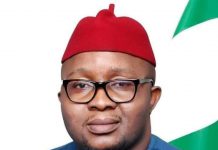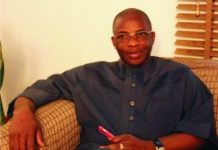By:
,
Dr. Chuks Osuji
Public Opinion Analyst
On Sunday January 20th which is the Constitutional date for the swearing-in a new America President, Barack Obama, the first African American to become an American President took oath of office for the second time in history.
This was the consequence of the Presidential Election held on November 6th, 2012 in which Obama, Democrat, defeated Mitt Romney, the Republican challenger. It was an election characterized by several unusual in the annals of American Political System. It was the most divisive and polarized election, punctuated by several political uncertainties including the unpredictability of the election result; it was the most callous campaign characterized by character assassination, name-calling and mud-throwing which were unusual in American Presidential Elections. Above all, it was an election in which almost all the pundits, including well known public opinion polls predicted a very close race between the two candidates to a point when it was predicted that one candidate may win the electoral votes without being ahead in the popular votes. But when all is said and done, Obama won in both the popular and electoral votes, thus establishing his wide-spread acceptance by the American voters across the different strata or the voting population thereby proving the posters and pundits wrong for the first time.
Thus, Barrack Obama, 20th January, took oath of office administered by the Chief Justice of the United States for the second time in history.
Yes, that the son of a former African American citizen could be elected the President for the second time is indeed a manifestation of those cardinal pillars which make the American Presidential System and democracy a stable and unbendable system which has stood several strains and stresses over the years. These included a civil war in eighteen sixty one, liberation of millions of slaves in 1865 to become free citizens of America; several years of racial discriminations occasioned by numerous racist policies, civil rights deprivation, segregation on a massive scale, in schools, housing and employment, political deprivation including reducing blacks to a distant second-class citizens in addition to her harsh political, social and economic separations and discriminations including denying blacks voting rights or permutation of ten black voters to one white vote.
In spite of all these social, political and economic inadequacies to which black Americans were subjected, they persevered through the thicks and turns of history as their status changed from slaves to freedmen, to negroes, to niggers and to blacks and now to black Americans with full citizenship rights and fully integrated into the society for one of them to become a president.
In spite of these social and political upheavals which could have erupted widespread social disquiet, American Presidential system remained solid.
Admittedly, the system had produced some unusual occurrences which could have made it to disintegrate yet it has remained intact, absorbing some political shocks without breaking up.
For example, in its two hundred and twenty three years, four Presidents have been assassinated: they include Abraham Lincoln,1865; James Garfield,1881; William McKinley, 1901 and John F. Kennedy, 1963.
Similarly four have died in the office. They are William Henry Harrison, 1841; Zachary Taylor, 1950; Warren G. Harding, 1923; and Franklin Roosevelt, 1945. Of those who had become Presidents two have been impeached. They are Andrew Johnson and Richard Nixon. Johnson escaped guilty verdict by two votes; While Nixon resigned in 1974 to avoid impeachment. Out of those fourty-four Presidents sixteen have done two terms while twenty three did only a term. Only Franklin Roosevelt did three terms because of the Second World War.
On the other hand, professionally, of the fourty-four Presidents, twelve were senators; sixteen governors; eight were lawyers; six were farmers; two were sailors out of these numbers only William Henry Harrison 1841 died only one month in office after inauguration. In marital status, out of those fourty-four Presidents, five had two wives and only one President; William Henry Harrison had ten children.
Another surprising and interesting historical fact about the American Presidency is that in history, Gerald Ford was the first person to become Vice President and later President without contesting any election. Firstly, Richard Nixon appointed Ford the Vice President when Spiro Agnew, his Vice President resigned because of tax related charges.
Later, Nixon himself resigned to evade obvious impeachment and possible conviction in a case related to Watergate scandal, thus leaving Ford to become the President in 1974.
Perhaps, the most interesting aspect of American Presidential System and the inclusive nature of the system is that of the fourty-four Presidents, twenty of them have come from the South which caused the Civil War and seceded from the country and were forcefully reunited in 1863 by Abraham Lincoln, fifteen from the North, two from the West, and four from Mid-west including Obama. This is instructive to other African nations including Nigeria.
From the above interesting statistical facts, American Presidential System is the mother of all democracies based on a Presidential System which should remain as a pointer to all young democratic nations.
Analytically, there are few vital lessons which Nigerian political actors and their diehard supporters and other enthusiasts could learn from both the Presidential Election and the peaceful swearing-in of Barack Obama. Efforts will be made here to identify some of them.
In the first place, throughout the Presidential Campaign spree which became sometimes excessive use of verbal fire-works, we never heard of any skirmishes or violence relating to the campaign. No arson or other acts of vandalism was reported as emanating from the campaign. Rather, the candidates heavily concentrated on major issues of economy, employment, budget, clean environment, immigration, price of petroleum products, education, etc.
Of the three Presidential debates and one Vice President debate, candidates dwelled on the essential highlight of their programmes which was patterned along with their party ideology.
Secondly, during the election on the 6th November, there were no reports of snatching of ballot boxes or ballot papers.
In fact, Obama was declared the winner based on return from majority of State Constituencies. Although the Republican party made a little garagara to withhold conceding defeat by congratulating Obama, before the next day. Obama has exceeded the projected two hundred and seventy one electoral vote numbers.
The next day, Americans went on with their lives, heaven did not fall. American courts in the fifty States were not punctuated with a flood of election petitions disputing Obama’s victory.
If it was in Nigeria, heaven knows how many election petitions that would have flooded the courts. For example, nearly two years after the 2011 Presidential Election, there are still pending in the courts some election petitions. Why? One may ask. It is because in Nigeria there are political merchants who even instigate election actions if only to remain professionally active.
On a wider implication, uptil today, the acrimony of the civil war fought over forty five years ago is still potent. Those on the side of Biafra still suffer ingenuously contrived reprisal actions, politically, economically and even socially. It is not long time ago before some easterners could get certain positions in the Nigerian army or other armed forces.
Even uptill today has an Igbo man become Chief Justice of Nigeria- Chief Security Officer to the President or Commander of Presidential guard or other sensitive positions. Why is it taking Nigerians too long to consider an Igbo man to become the President? Yet, the first President of the United States after the civil war was Ulysses S. Grant from the very South that seceded from the rest of the country.
Perhaps, the most important lesson of the American Presidential Election is that as long as Nigerians continues to deny an Igbo man the Presidency, so far we must continue to wobble and fumble because not everybody is born a leader.









